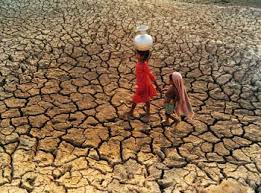The silent famine pandemic sweeping the planet
 February 17, 2012 – INDIA – A quarter of young children around the world are not getting enough nutrients to grow properly, and 300 die of malnutrition every hour, according to a new report that lays bare the effects of the global food crisis. There are 170 million children aged under five whose development has been stunted by malnutrition because of lack of food for them and their breastfeeding mothers, and the situation is getting significantly worse, according to research by the charity Save the Children. In Pakistan, Bangladesh, India, Peru and Nigeria – countries which are the home of half of the world’s stunted children – recent rises in global food prices are forcing the parents of malnourished children to cut back on food and pull children out of school to work. According to the report, A Life Free from Hunger: Tackling Child Malnutrition, a third of parents surveyed said their children routinely complain they do not have enough to eat. One in six parents can never afford to buy meat, milk or vegetables. It suggests that six out of 10 children in Afghanistan are not getting enough nutrients to avoid stunted growth. “If no co
February 17, 2012 – INDIA – A quarter of young children around the world are not getting enough nutrients to grow properly, and 300 die of malnutrition every hour, according to a new report that lays bare the effects of the global food crisis. There are 170 million children aged under five whose development has been stunted by malnutrition because of lack of food for them and their breastfeeding mothers, and the situation is getting significantly worse, according to research by the charity Save the Children. In Pakistan, Bangladesh, India, Peru and Nigeria – countries which are the home of half of the world’s stunted children – recent rises in global food prices are forcing the parents of malnourished children to cut back on food and pull children out of school to work. According to the report, A Life Free from Hunger: Tackling Child Malnutrition, a third of parents surveyed said their children routinely complain they do not have enough to eat. One in six parents can never afford to buy meat, milk or vegetables. It suggests that six out of 10 children in Afghanistan are not getting enough nutrients to avoid stunted growth. “If no co ncerted action is taken,” warns Justin Forsyth, the charity’s chief executive, “half a billion children will be physically and mentally stunted over the next 15 years.” Over the past five years the price of food has soared across the globe, thanks to extreme weather conditions, diverting farmland to grow bio-fuels, speculative trading of food commodities and the global financial crisis. The poor, who spend the bulk of their income on food, are hit hardest. One in four parents in the countries surveyed have been forced to cut back on food for their families. One in six have had children skip school to help their parents at work. In India, half of all children are stunted from malnutrition with a quarter often going without food entirely. In Afghanistan, the price of food has risen 25 per cent – the average rise worldwide in 2011. In places like Kenya it is up 40 per cent. -Independent
ncerted action is taken,” warns Justin Forsyth, the charity’s chief executive, “half a billion children will be physically and mentally stunted over the next 15 years.” Over the past five years the price of food has soared across the globe, thanks to extreme weather conditions, diverting farmland to grow bio-fuels, speculative trading of food commodities and the global financial crisis. The poor, who spend the bulk of their income on food, are hit hardest. One in four parents in the countries surveyed have been forced to cut back on food for their families. One in six have had children skip school to help their parents at work. In India, half of all children are stunted from malnutrition with a quarter often going without food entirely. In Afghanistan, the price of food has risen 25 per cent – the average rise worldwide in 2011. In places like Kenya it is up 40 per cent. -Independent